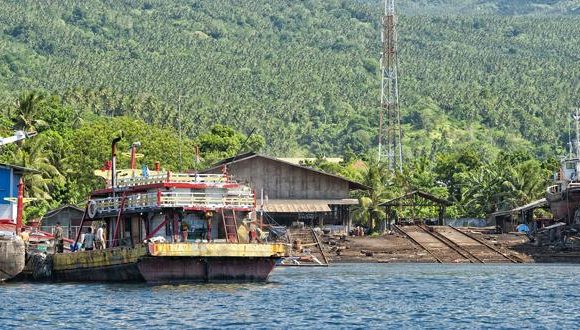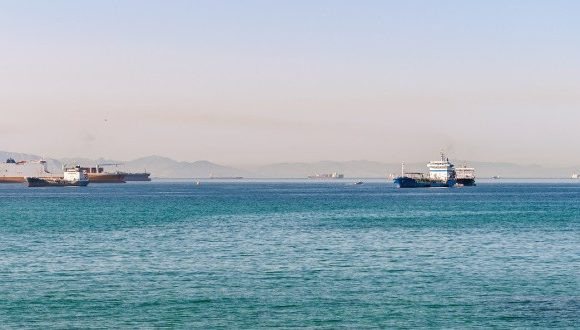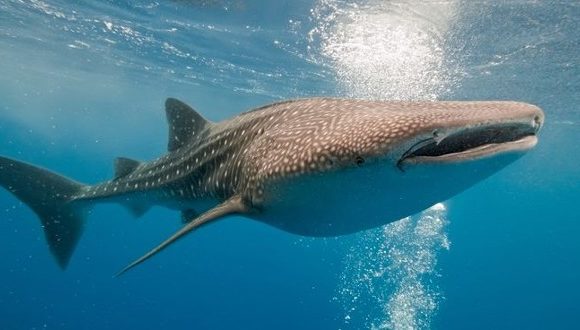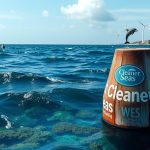Responsible Diving and Snorkeling: How to Explore Without Harming Coral Reefs
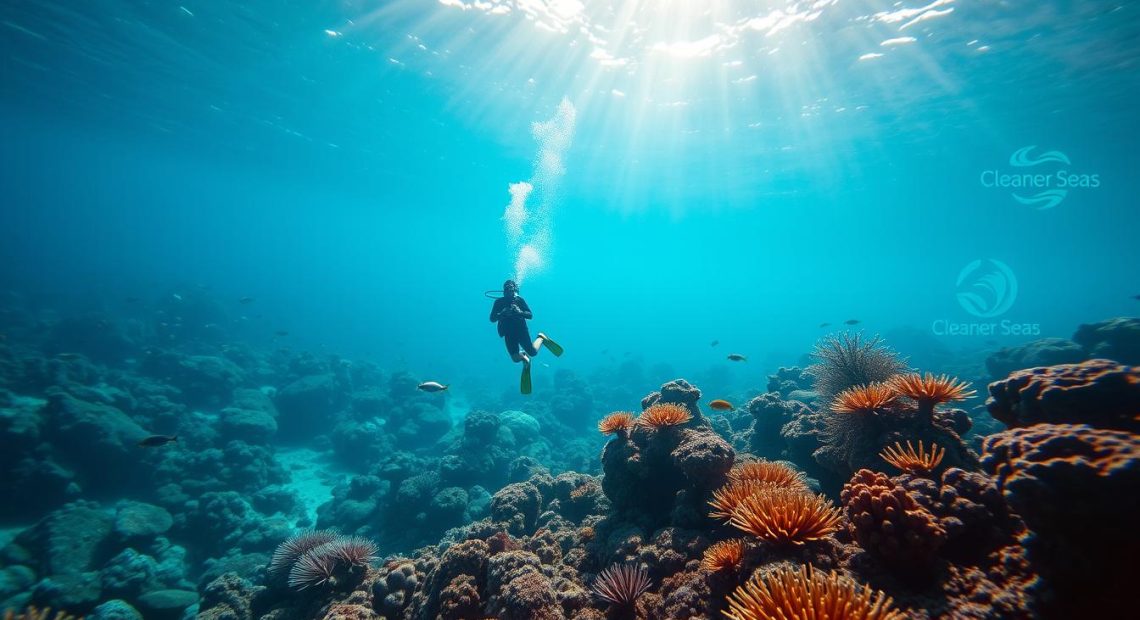
Coral reefs are a wonder for divers and snorkelers everywhere. Yet, these delicate ecosystems are under threat. It’s vital to dive and snorkel responsibly to protect them. Florida’s Coral Reef in Dry Tortugas National Park is a prime example, covering 100 square miles of sea and seven islands.
Coral reefs are home to a quarter of all marine life. Sadly, 30% have been damaged by humans. If we don’t act, up to 90% could be at risk by 2050. Irresponsible diving can cause up to 60% damage in busy areas.
But there’s a way to make a difference. Dive operators using mooring buoys can cut damage by 70%. Simple actions like using reef-safe sunscreens and wearing rashguards can help a lot. In fact, responsible diving can boost coral survival by 50% in tourist spots.
Green Fins, started by the UN Environment in 2004, is a beacon of hope. It works in places like Malaysia, Thailand, and Indonesia. Green Fins trains and certifies dive operators to lessen their environmental footprint. This teamwork between operators, locals, and governments is essential for coral reefs to fight off threats like climate change.
Key Takeaways
- Coral reefs support 25% of marine species but face significant threats
- Responsible diving practices can reduce reef damage by up to 70%
- Reef-safe sunscreens and protective clothing help minimise harm
- Initiatives like Green Fins promote sustainable diving practices globally
- Collaboration between divers, operators, and communities is key for reef conservation
Understanding the Importance of Coral Reefs
Coral reefs are key parts of our oceans. They cover only 1% of the world’s oceans but home to at least 25% of marine life. This shows why Marine Life Education and Environmental Awareness are vital for their protection.
What Are Coral Reefs?
Coral reefs are made by tiny animals called coral polyps. These animals build their homes from calcium carbonate. Over time, these homes grow into the massive reefs we see today.
The Dry Tortugas National Park has about 30 coral species. Some are even threatened, like elkhorn, staghorn, and pillar coral.
The Role of Coral Reefs in Marine Ecosystems
Coral reefs are like the ‘rainforests of the sea’. They are home to over 4,000 species of fish, corals, and more. About 25% of the ocean’s fish depend on reefs for survival.
These ecosystems also help local economies and protect coastlines. They bring in billions through tourism and keep coastlines safe from storms.
Threats Facing Coral Reefs Today
Coral reefs face many dangers. Climate change, ocean acidification, and human actions are big threats. The 2014-2017 coral bleaching event hit 70% of reefs worldwide, including the Great Barrier Reef.
This shows we need more Marine Life Education and Environmental Awareness. We must act fast to save these vital ecosystems.
“Over half a billion people rely on coral reefs for food, income, and protection. The net economic value of the world’s coral reefs is estimated to be nearly tens of billions of U.S. dollars per year.”
Principles of Responsible Diving
Responsible diving and snorkeling are key to keeping our oceans healthy. With 8 million divers globally, we have a big chance to make a difference. If each diver picked up just one piece of plastic, we could cut down ocean pollution a lot.
Preparing for a Sustainable Dive
Getting ready for a dive is important for safety and the environment. Drink plenty of water and avoid alcohol before diving to avoid sickness. Always check your gear and plan your dive carefully.
- Maintain visual contact with your diving buddy
- Monitor air supply regularly
- Ascend well before air supply becomes critically low
Equipment Considerations for Eco-Friendly Diving
Choosing the right gear is vital for eco-friendly diving. Use reef-safe sunscreens and biodegradable products to reduce harm. Keep your buoyancy in check to avoid damaging coral. Dive operators like those in the Florida Keys’ Blue Star programme offer eco-friendly options.
By following these tips, we can enjoy diving while protecting our oceans. Remember, diving responsibly is not just about staying safe. It’s also about protecting the marine life that makes diving so special.
Best Practices for Snorkeling
Responsible diving and snorkeling are key to keeping coral reefs and marine life safe. By following good underwater etiquette, we can enjoy the beauty of underwater worlds without harming them.
Choosing the Right Snorkeling Spot
Finding the right snorkeling spot is important for safety and protecting the environment. Dry Tortugas National Park in Florida is a great place to snorkel responsibly. When picking a spot, think about your skill level and the weather conditions.
- Check local regulations and guidelines
- Opt for areas with healthy coral coverage
- Avoid crowded spots to reduce collective impact
Snorkeling Techniques to Minimise Impact
Learning the right snorkeling techniques is vital for protecting coral reefs. Knowing how to control your buoyancy and use your fins can help avoid damaging the delicate marine environment.
- Maintain a horizontal body position
- Use gentle, controlled fin movements
- Keep a safe distance from coral and marine life
“Coral reefs can take decades to recover from damage caused by human activities. Some studies indicate recovery can take up to 10-20 years for minor disturbances.”
By diving and snorkeling responsibly, we can help protect these fragile ecosystems for the future. Every small action we take can make a big difference in keeping our oceans healthy.
Environmental Impact of Diving
Diving lets us explore underwater worlds. But, it’s important to know how it affects marine ecosystems. Divers have a big role in protecting these environments.
Diving’s Effect on Marine Life
Scuba diving can harm marine life. This is due to physical contact, noise, and disturbing their behaviour. Even touching coral can hurt it and the diver.
Studies show diving can damage coral reefs. This leads to fewer species and changes in the reef’s structure. It’s a big problem for marine life.
Reef Damage Consequences
Reef damage has serious long-term effects. Coral reefs are key for biodiversity. They also help with food, protect against storms, and support local tourism.
The 2022 IPCC report warns about coral reefs. Warmer and more acidic waters will harm them. This makes it even more important for divers to be aware of their impact.
- Fin impacts cause significant damage to erect and branching hard corals
- Diver-induced damage occurs faster than natural recovery in frequently dived sites
- Underwater photography can lead to increased contact with sensitive marine life
Divers can make a difference by being more careful. Training in low impact diving helps. It shows how education is key in protecting marine life.
Educating Yourself and Others
Learning about marine life is key to diving and snorkelling responsibly. As divers, we can protect the ocean and spread the word about environmental care.
Resources for Responsible Diver Education
There are many ways to learn more about marine ecosystems and how to protect them:
- Online courses on marine biology and ecology
- Workshops by local dive centres on green diving
- Certification programmes like the Green Fins Diver e-Course
- PADI AWARE® Specialty courses for deep environmental learning
Promoting Marine Conservation Awareness
Divers can be strong voices for marine conservation by sharing what they know:
- Join local beach clean-ups and reef projects
- Post underwater photos on social media to raise awareness
- Support eco-friendly dive operators who care about the sea
- Teach others to dive responsibly
By learning and teaching others, we help protect our oceans. Every diver can make a difference with their actions and awareness.
Eco-Tourism and Diving Trips
Eco-tourism has changed the diving world. More people want to travel sustainably. Dive operators now focus on less harm to the environment and more good for local communities.
Choosing Eco-Friendly Dive Operators
When you plan your next dive, find operators with eco-credentials. PADI Eco Centers, for example, work on conservation and reduce their environmental impact. They’ve seen a 22% better score in environmental actions.
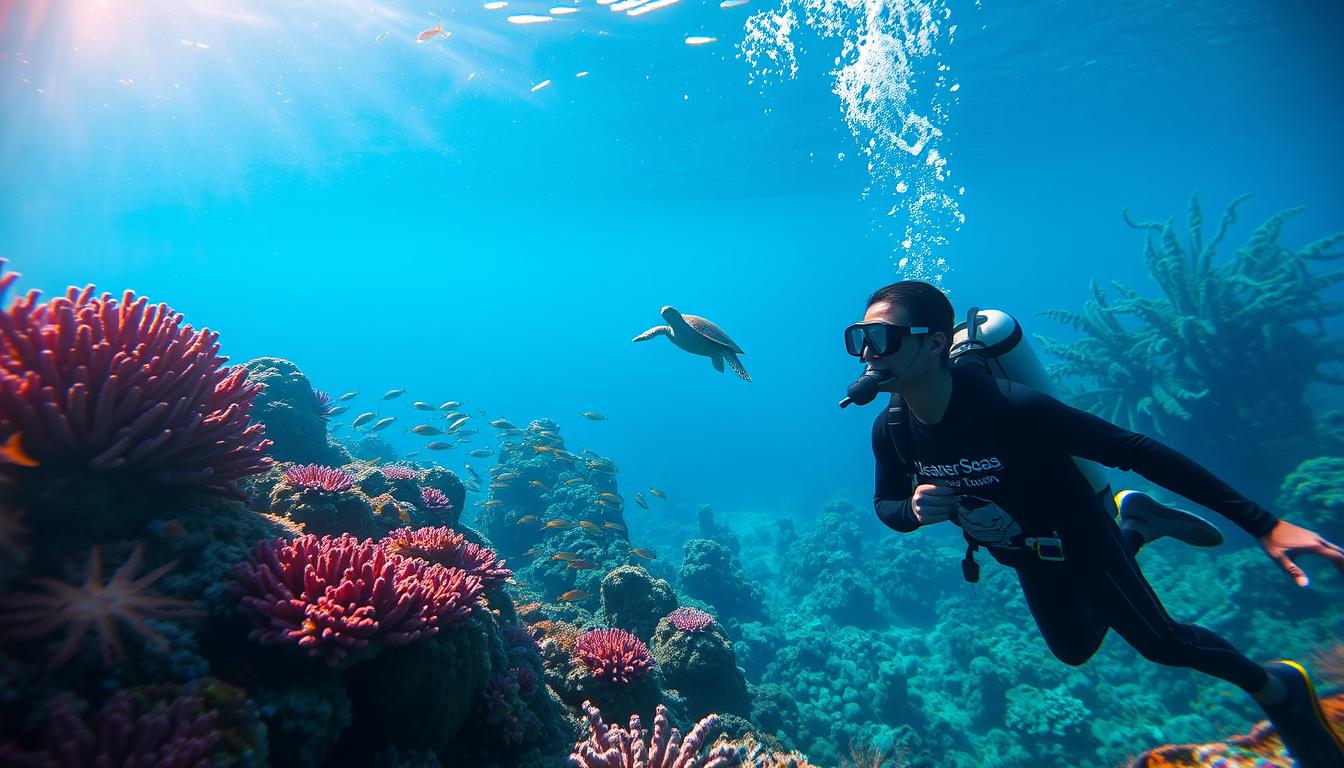
Look for Blue Star operators who promote safe diving and snorkelling. They follow strict rules and teach others to do the same. This helps keep the marine ecosystem healthy.
The Benefits of Supporting Sustainable Tourism
Choosing eco-friendly dive trips has many advantages. It helps local economies and creates jobs. By picking operators who care about conservation, you help protect the sea for the future.
“Divers are willing to pay more for sustainable dive adventures that contribute to ocean conservation.”
Eco-tourism in places like Raja Ampat, Indonesia, and Bonaire shows sustainability and amazing dives can go together. These spots have lots of life and protect their waters with Marine Protected Areas and no plastic.
Supporting eco-tourism in your diving trips means more than just seeing the sea’s beauty. You’re helping to keep it safe for others to enjoy.
Marine Wildlife and Responsible Interaction
It’s key to interact with marine wildlife responsibly to keep our oceans healthy. Marine Life Education helps teach divers and snorkelers how to watch without harming the underwater world.
Observing Marine Life Without Disturbing
Knowing how to act underwater is vital. Divers should stay far from wildlife to prevent stress and harm. For example, at Ningaloo Reef, swimmers must keep at least 3 metres from a whale shark’s head and 4 metres from its tail.
Even a small touch can hurt a lot. A strong kick from fins can destroy coral that took years to grow. Some corals grow very slowly, so damage can erase years of growth quickly.
The Importance of Not Feeding Wild Fish
Feeding wild fish messes with their natural eating habits. This can harm the whole marine ecosystem. For example, a young whale shark eats about 20 kilograms of plankton every day. Changing its diet can upset the balance of the sea.
- Maintain proper distance from marine life
- Use fins carefully to avoid damaging coral
- Never touch or feed wild animals
- Choose reef-safe sunscreen to protect marine environments
By following these rules and practicing good Underwater Etiquette, we can enjoy marine life. We also help make sure it’s there for others in the future.
The Role of Divers in Conservation
Divers are key in saving our oceans. They can reach underwater places that others can’t. This helps a lot in protecting our seas. It also spreads the word about caring for the environment among divers and others.
Contributing to Coral Restoration Projects
Divers help with coral projects. They work on growing coral in nurseries and moving healthy coral to damaged reefs. For example, in Cabo Pulmo National Park, coral efforts have boosted fish numbers by 460%.
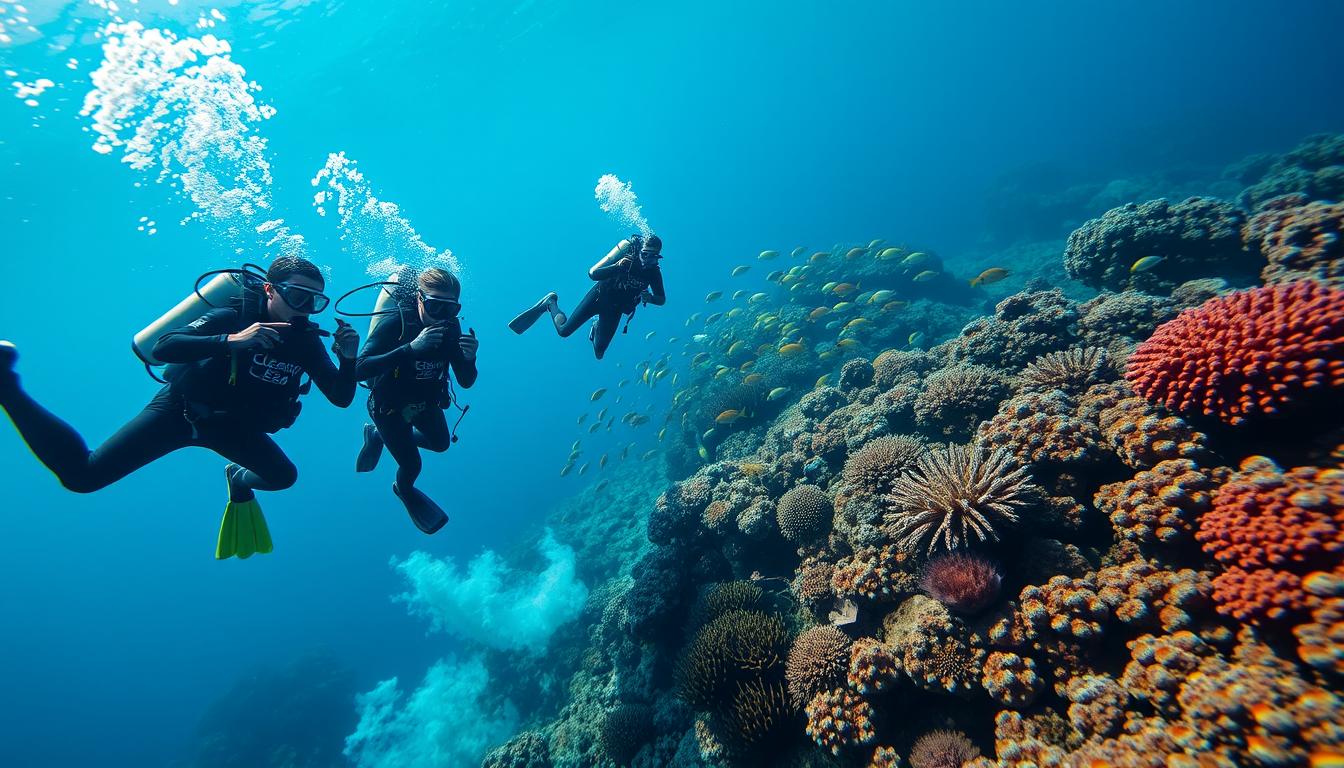
Participating in Citizen Science Initiatives
Divers join in on science projects. They do things like:
- Monitoring reef health
- Surveying invasive species
- Participating in clean-up dives
- Recording marine life sightings
This helps scientists and guides how to protect the sea.
Groups like Project AWARE and Dive Against Debris help divers help the sea. By choosing green dive spots, using safe products, and diving carefully, divers can help a lot.
Tools and Technology for Responsible Diving
Modern technology is key in marine conservation and raising environmental awareness. Divers now have access to new tools that make their underwater experience better. These tools also help them dive responsibly.
Using Apps for Marine Conservation
Mobile apps have changed how divers interact with marine ecosystems. These apps help identify species, track dives, and join citizen science projects. By using these apps, divers can help marine conservation efforts and learn more about the environment.
Benefits of Underwater Cameras to Raise Awareness
Underwater cameras are great for marine conservation. The Paralenz Vaquita, for example, can record 4K videos up to 350 metres deep. These high-quality images and videos show the beauty and fragility of underwater worlds.
- Cameras capture evidence of environmental changes
- Visual content inspires others to protect marine life
- Underwater photography supports scientific research
By using these technologies, divers can help protect our oceans. Apps and underwater cameras let divers explore responsibly. They also help in protecting our oceans.
Regulation and Policy in Marine Protection
The UK is serious about protecting our seas. It has a strong set of rules to keep our oceans safe. The Marine and Coastal Access Act 2009 brought in marine licensing. This is managed by the Marine Management Organisation (MMO).
This law helps protect our underwater world. It also encourages people to care more about the environment.
Understanding Marine Protected Areas (MPAs)
Marine Protected Areas are key to saving our ocean’s habitats. These areas have rules to keep marine life safe. Divers need to know that some places might not allow diving or have limits on how many can dive.
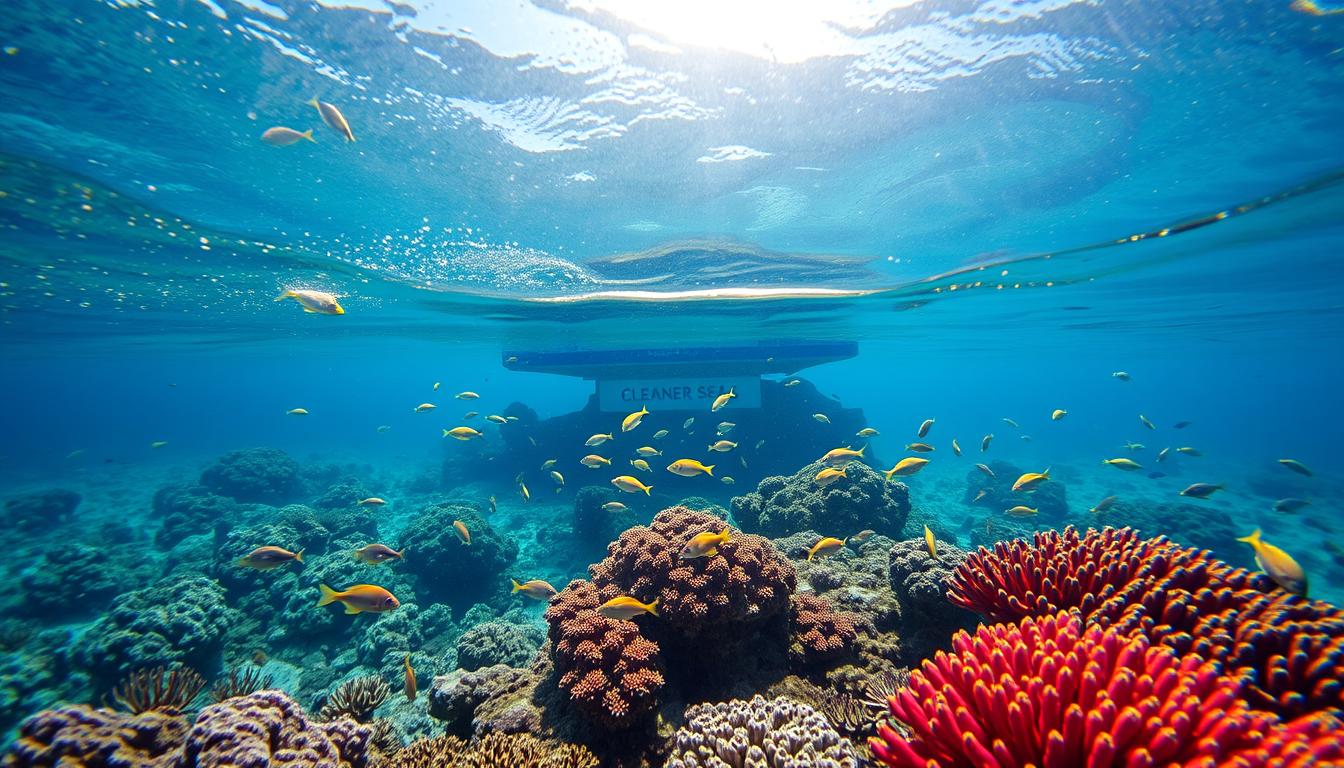
The Impact of Regulations on Diving Practices
Diving rules in the UK aim to protect our seas while letting divers explore. Important points include:
- Hand-operated activities on the seabed don’t need a licence, but using a vessel might
- The Diving at Work Regulations 1997 must be followed by professional divers
- Marine wildlife licences are needed for activities affecting protected species
- Wreck diving laws carry penalties of up to 4 years in prison for violations
These rules help protect our seas while allowing diving. By following these rules, divers can help protect our oceans. They can also have safe and enjoyable dives.
Future of Responsible Diving and Snorkeling
The future of diving and snorkelling looks bright, with a focus on marine conservation. The diving community is now more aware of its impact on the sea. New solutions are coming up to protect our oceans.
Innovations in Marine Conservation
New technologies are changing how we protect the sea. Systems now track coral health in real-time. Also, eco-friendly dive gear is making underwater adventures less harmful.
These steps are key in fighting the loss of coral reefs. It’s estimated that 50% of reefs worldwide are at risk due to human actions.
The Evolving Role of Divers in Protecting Reefs
Divers are now more than just observers. They’re helping protect reefs. Many snorkelers and divers see the damage caused by humans and want to help.
The UNESCO Code of Ethics guides them on how to interact with underwater sites. This code helps ensure diving is done responsibly.
The diving world is also tackling plastic pollution. Divers are removing a lot of plastic from the sea. Their efforts show a commitment to keeping the sea clean for future explorers.
FAQ
What are the main principles of responsible diving?
How can I minimise my impact while snorkeling?
Why is it harmful to feed wild fish while diving or snorkeling?
What should I look for when choosing an eco-friendly dive operator?
How can divers contribute to coral restoration projects?
What are Marine Protected Areas (MPAs) and how do they affect diving?
How can underwater photography support marine conservation?
What are some emerging technologies in marine conservation that divers should be aware of?
How does climate change affect coral reefs, and what can divers do to help?
What should I do if I accidentally touch or damage coral while diving?
Source Links
- https://seenblue.org/2025/02/14/a-guide-to-responsible-diving-and-snorkeling-at-coral-reefs/ – A Guide to Responsible Diving and Snorkeling at Coral Reefs
- https://www.coraltrianglecenter.org/2018/02/05/responsible-diving-and-snorkeling-the-green-fins-way/ – Coral Triangle Center | Responsible Diving and Snorkeling the Green Fins Way
- https://oceanservice.noaa.gov/education/tutorial_corals/coral07_importance.html – NOAA National Ocean Service Education: Corals Tutorial
- https://www.noaa.gov/education/resource-collections/marine-life/coral-reef-ecosystems – Coral reef ecosystems
- https://divingescapades.com/scuba-diving-principles/ – 11 Essential Scuba Diving Principles: Important Things to Remember When Diving
- https://www.dresseldivers.com/blog/sustainable-diving/ – Sustainable Diving or How to Dive Responsibly?
- https://floridakeys.noaa.gov/visitor_information/things-to-do/responsible-diving.html – Tips For Being a Responsible Diver
- https://www.klook.com/blog/dive-and-snorkel-responsibly/ – How to Dive and Snorkel Responsibly: Tips to Protect Our Ocean – Klook Travel Blog
- https://www.snorkeling-report.com/eco-conscious-snorkeling/ – 10 Tips for Eco and Reef-Friendly Snorkeling | Responsible Snorkeling
- https://earthwatch.org/stories/dive-sustainability-how-scuba-skills-can-restore-oceans – Dive into Sustainability: How Scuba Skills Can Restore Oceans
- https://en.wikipedia.org/wiki/Environmental_impact_of_recreational_diving – Environmental impact of recreational diving
- https://www.abyss.com.au/en/blog/viewpost/454/how-scuba-diving-promotes-environmental-awareness-and-conservation-efforts – No title found
- https://www.responsibletravel.com/holidays/diving/travel-guide/responsible-scuba-diving – Responsible scuba diving
- https://blog.padi.com/how-to-talk-to-other-divers-about-bad-habits/ – How To Talk To Other Divers About Bad Habits
- https://www.diverightinscuba.com/blog/your-guide-to-sustainable-and-responsible-dive-travel?srsltid=AfmBOoqf8zmyaErwy_ALIL-kY1-9KJyDOgRD8pevmLfzqQW-haw6sTeY – Your Guide to Sustainable and Responsible Dive Travel
- https://acorntourism.co.uk/insights/blog/read/2024/11/how-dive-tourism-drives-sustainability-and-conservation-b107 – How Dive Tourism Drives Sustainability and Conservation
- https://blog.padi.com/padi-eco-centers-ecotourism-scuba-diving-industry/ – How PADI Eco Centers Are Changing the Face of Ecotourism in the Scuba Diving Industry
- https://www.abyss.com.au/en/blog/viewpost/522/eco-friendly-diving-the-ultimate-guide-to-sustainable-underwater-adventures – No title found
- https://blog.padi.com/responsible-marine-life-interactions-dos-donts/ – Responsible Marine Life Interactions: The Do’s and Don’ts
- https://www.thescubanews.com/2024/03/11/marine-life-interactions-how-to-snorkel-responsibly-and-safely/ – Marine Life Interactions: How to Snorkel Responsibly and Safely – The Scuba News
- https://www.frontiersin.org/journals/marine-science/articles/10.3389/fmars.2023.1212790/pdf – A deeper dive into the blue economy: the role of the diving sector in conservation and sustainable development goals
- https://master-divers.com/blog/2024/04/10/exploring-marine-conservation/?srsltid=AfmBOoqMx382GL-D97B3Oq8zTczWCSWFAuon-Pds-KNvjGLwwdljO_eH – Marine Conservation: Responsible And Sustainable Diving
- https://www.abyss.com.au/en/blog/viewpost/617/dive-responsibly-protecting-our-oceans-as-scuba-divers-ocean-conservation-guide – No title found
- https://www.zubludiving.com/articles/zublu-insights/5-must-have-scuba-equipment-for-the-sustainable-diver – 5 must-have items for sustainable scuba divers
- https://www.diverightinscuba.com/blog/your-guide-to-sustainable-and-responsible-dive-travel?srsltid=AfmBOoo_ToI4yDEOP2jx5KIN7MsO_54J_8EWBWQrTWRlnYJWXrIuY0O- – Your Guide to Sustainable and Responsible Dive Travel
- https://www.gov.uk/government/publications/marine-licensing-guidance-for-recreational-divers – Marine licensing guidance for recreational divers
- https://www.bsac.com/news-and-blog/staying-within-the-law-when-scuba-diving/ – Staying within the law when scuba diving
- https://www.dive-ni.com/responsible-diving/ – Responsible Diving – DiveNI
- https://www.seaparadise.com/how-eco-friendly-diving-and-snorkeling-can-help-save-our-oceans/ – How Eco-Friendly Diving and Snorkeling Can Help Save Our Oceans | Sea Paradise
- Eco-Friendly Beach Destinations That Protect Marine Life

